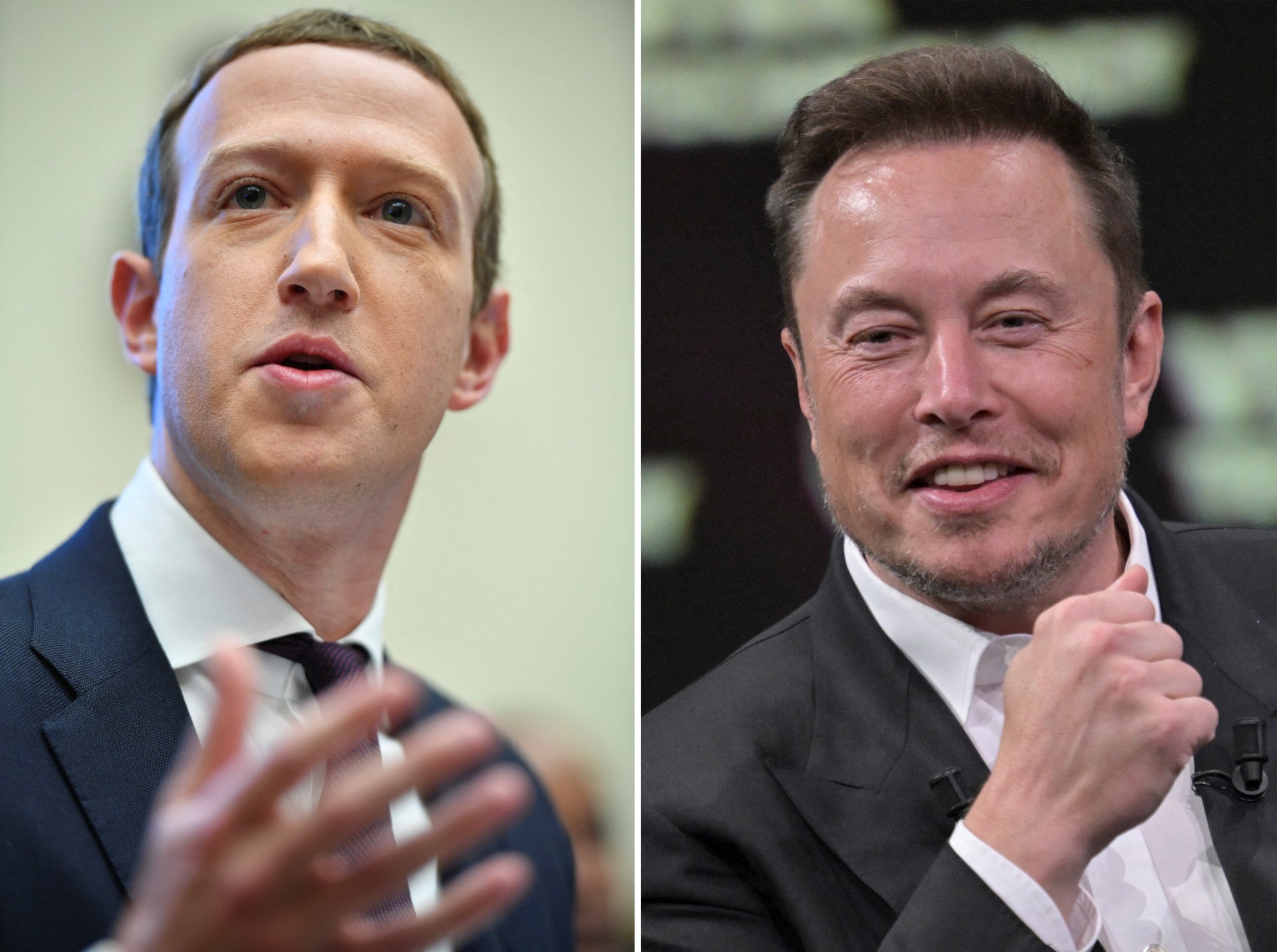Brussels, Belgium – Brussels is demanding that X and Meta crack down on disinformation, as fake and misleading online posts proliferate in the wake of Hamas’s deadly assault on Israel.
Thierry Breton, EU commissioner and self-styled “digital enforcer”, raised the alarm in letters sent to Elon Musk, owner of X, formerly known as Twitter, and Mark Zuckerberg, whose Meta group includes Facebook and Instagram.
He demanded each of them provide details within 24 hours on what they were doing to ensure “illegal content and disinformation” was being removed from their platforms in line with the EU’s new Digital Service Act (DSA).
The legislation, which came into effect for large platforms in August, bans illegal online content under threat of fines running as high as six percent of a company’s global turnover.
The warning prompted an online duel between Breton and Musk on Wednesday.
The billionaire used his platform to publicly ask the EU commissioner to “please list the violations you allude to on X”, and said the platform’s policy was that “everything was open source and transparent, an approach that I know the EU supports”.
He signed off “merci beaucoup” in a nod to Breton’s French nationality.
Breton responded that it was up to Musk to “demonstrate that you walk the talk” and added that his team was standing by to “enforce rigorously” DSA compliance.
In a similar slapdown, Breton used his X account to trumpet a rival to X called Bluesky, which is led by former Twitter executives.
“Even though the grass is not (always) greener on the other side, the sky is sometimes… bluer,” Breton wrote.
Breton also posted his new Bluesky profile, giving his Bluesky handle and his bio description of “EU Commissioner. Digital enforcer. Father.”
Musk wary of X rivals
Musk is notoriously sensitive about competing microblogging platforms which are syphoning away X/Twitter users upset with the direction the billionaire is taking his platform.
For a time, Musk — a self-described free-speech “absolutist” — even had X block links pointing users to one open-source rival, Mastodon.
And he has started legal action against Threads, a new alternative launched by Meta that is not available in Europe because of wariness over the EU’s regulatory oversight.
Bluesky is so far tiny compared to X because access is invitation-only from existing users, preventing bots, spammers and propaganda operatives from creating thousands of fake accounts.
But it is growing fast, and users say their experience on it has little of the trolling, spam and disinformation increasingly encountered on X since Musk took it over.
X is most prominent in the European Union’s DSA crosshairs because of the way its content moderation teams — and many of its other employees — have been jettisoned by Musk as he seeks to rein in costs.
It fared the worst of any platform is a pilot EU analysis of illegal online content, and has left a voluntary EU code of practice on battling disinformation.
Breton’s letter to Musk highlighted “violent and terrorist content that appears to circulate on your platform” following Hamas’s weekend operation to kill and take hostage Israelis living close to the boundary with Gaza.
His letter to Zuckerberg asked him to “urgently” ensure that moderation systems on Meta platforms were effective and to be “vigilant” about DSA compliance in light of the ongoing conflict.
Breton also raised the need for Meta to focus on disinformation around elections happening in the EU.
Online ‘Wild West’
He said Brussels was taking “extremely seriously” the risk of “fake and manipulated images and facts generated with the intention to influence elections”.
Breton does not decide himself what constitutes illegal online content — that is defined by EU laws or legislation in EU member countries — but he plays an active role in putting attention on platforms.
The commissioner has hailed the EU rules he helped bring in as an effort to tame an online “Wild West”.
In a post on X last year, he said: “A new sheriff is in town — and it goes by the name DSA.”
Advertisers have stepped back from X, causing its revenues to plummet. Several celebrities and newsmakers have left.
Since Hamas militants stormed Israel’s border area around the Gaza enclave on the weekend, big online platforms have been flooded with videos showing gruesome deaths, hostages and bombardments.
On X, the authenticity and veracity of many of the posts are difficult to determine because the platform has replaced its blue-tick verification system with one where any user can simply buy in.
In several posts, images from unrelated areas and incidents have been falsely presented as occurring during the Hamas raids or conflict with Israel.
And since last week, X has ceased giving links to news articles that are posted, replacing them with an image only that gives no context or description.
International news agency AFP is taking legal action against X in France to enforce EU law relating to payments for use of online content.

